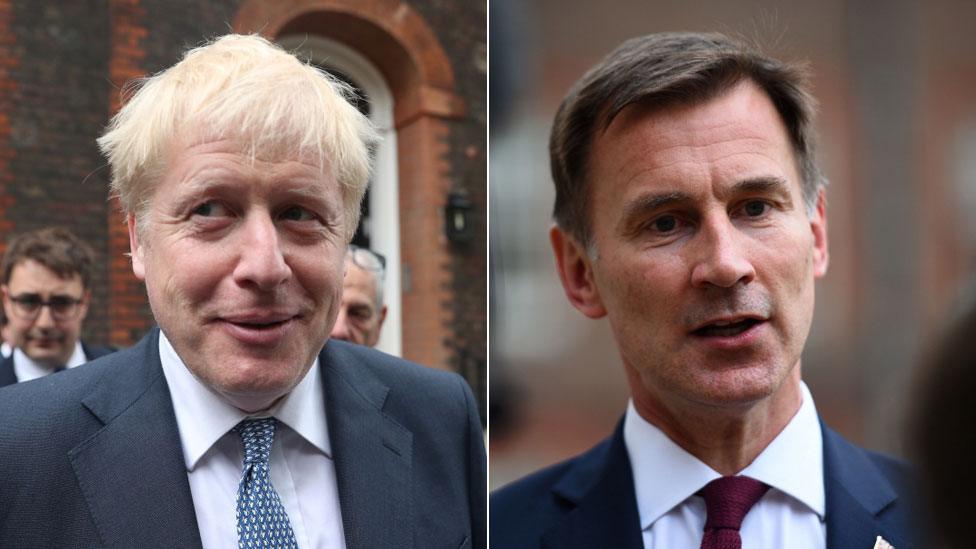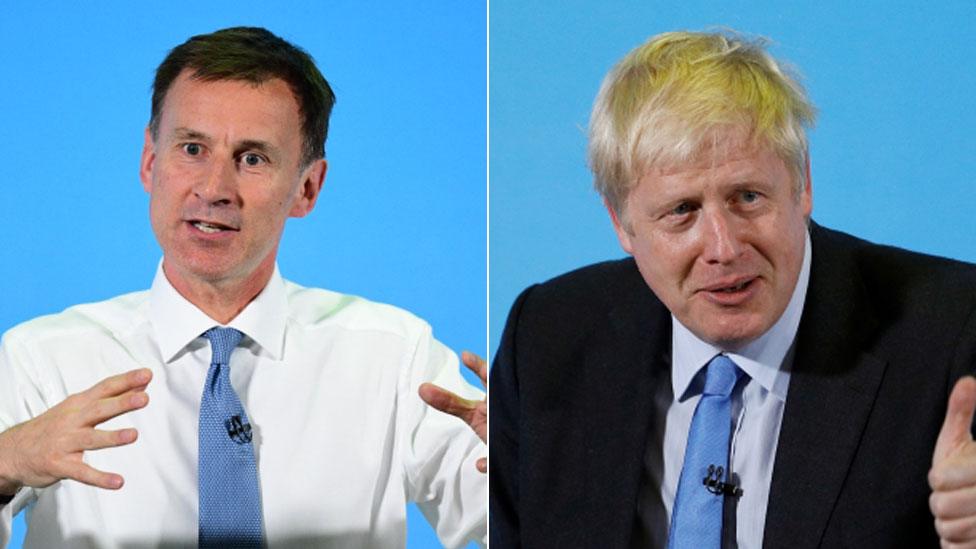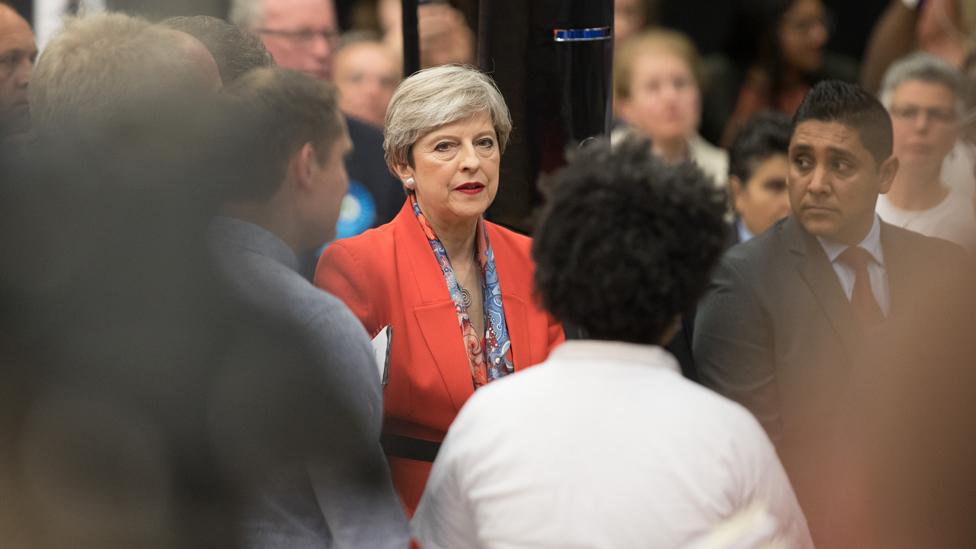Brexit: No-deal Brexit would be UK's choice, Ireland's deputy PM says
- Published
Simon Coveney: Ireland would have to protect its place in the EU single market
If the new UK prime minister wants to "tear up" the existing withdrawal agreement with the EU "we're in trouble", Ireland's deputy PM has said.
Simon Coveney said the decision for a no-deal Brexit would be the UK's but added checks "of some sorts" would be needed in the Irish Republic.
Ireland would have to protect its place in the single market, he told the BBC.
Both men vying to become UK PM say they want to change the withdrawal deal and, in particular, the so-called backstop.
Mr Coveney warned: "That's a little bit like saying, 'Give me what I want or I'm going to burn the house down for everybody.'"
He told the BBC's Andrew Marr Show he hoped the UK and EU would negotiate a future relationship that would mean the backstop - designed as an insurance policy to prevent a hard border on the island of Ireland - could be avoided.
However, he warned it could not be removed from the withdrawal agreement.
"The EU has made it very clear that we want to engage with the new British prime minister, we want to avoid a no-deal Brexit but the solutions that have been put in place to do that haven't changed," Mr Coveney said.
"If the British government forces a no-deal Brexit on everybody else, the Republic of Ireland will have no choice but to protect its own place in the EU single market. That would fundamentally disrupt the all-Ireland economy."
He said the all-Ireland economy had helped maintain peace on the island of Ireland but that protecting it would "not be possible" in the event of a no-deal Brexit.
However, he added that contingency plans were being drawn up with the European Commission to try to minimise the disruption.

Boris Johnson and Jeremy Hunt have said they would keep no deal on the table to strengthen negotiations
But former Tory leader and Brexiteer Iain Duncan Smith said both the EU's chief Brexit negotiator Michel Barnier and the Irish prime minister had told him there would be no hard border with Northern Ireland in the event of a no-deal Brexit.
"I asked, well, lay out what your proposals are - and we'd already proposed alternative arrangements - and basically what was described to me was alternative arrangements - the same thing we'd been talking to them about which would alleviate the idea of necessary checks on the island of Ireland based on what exists at the moment," Mr Duncan Smith said.
And DUP leader Arlene Foster said she was "disappointed, but not surprised" by what Mr Coveney had said, and accused him of trying to "look tough" in the eyes of the incoming prime minister.
The DUP, whose 10 MPs are crucial for the Conservative Party's majority, has said it does not want the UK to leave the EU without a deal, but believes ruling out no-deal would damage the UK's negotiating hand.

Analysis
By Jayne McCormack, BBC Northern Ireland's political reporter
Much of what Simon Coveney had to say today mirrored his warnings in the past.
No time limit on the backstop, there is wiggle room on the political declaration and no deal would be a disaster for the economy.
But there was one key difference this time - his intended recipient of the message.
The Irish government is acutely aware that the incoming prime minister is likely to want to make good on his Brexit strategy.
No deal is still on the table.
The Republic of Ireland has managed to keep the EU on board and its backstop argument has not changed - but can it hold the line?
This was also the clearest interview from Mr Coveney yet - stressing if a no-deal Brexit does happen, the blame rests with Westminster, not Dublin.
DUP leader Arlene Foster hit back that the Irish deputy prime minister was trying to "look tough" to the new PM.
In the coming days, we will likely see much more "tough talk" emerging from both sides.

The withdrawal agreement has been rejected three times by MPs in the Commons, with the backstop a key sticking point among Brexiteers.
The two men vying to become the next prime minister, Boris Johnson and Jeremy Hunt, have said the backstop is "dead" - a position seen as increasing the likelihood of a no-deal Brexit.
If MPs fail to support a Brexit deal agreed between UK and EU by 31 October, the legal default is to leave with no deal on that date.
Both contenders to be the next prime minister have said they want to leave on that date and renegotiate with the EU, leaving with a deal.
But Mr Hunt and Mr Johnson have also said they would keep the possibility of no deal on the table to strengthen negotiations, despite Parliament voting to rule the option out.
Mr Johnson has also refused to rule out suspending Parliament to force a no-deal Brexit through.
This week, MPs backed a bid to make it harder for a new prime minister to do this.
A majority of 41 approved the amendment, with four cabinet ministers, including Chancellor Philip Hammond, abstaining.

Do you have any questions about what would happen in the event of a no-deal Brexit?
Use this form to ask your question:
If you are reading this page and can't see the form you will need to visit the mobile version of the BBC website to submit your question.
- Published16 October 2019

- Published16 July 2019

- Published18 July 2019
